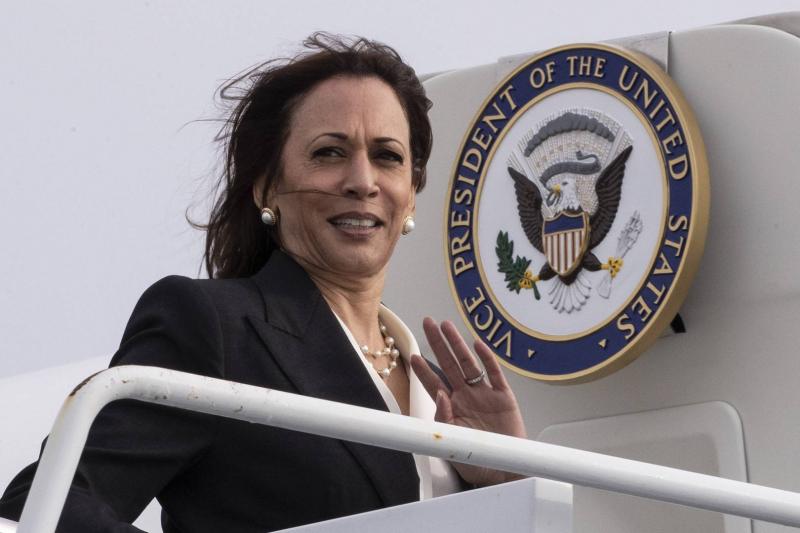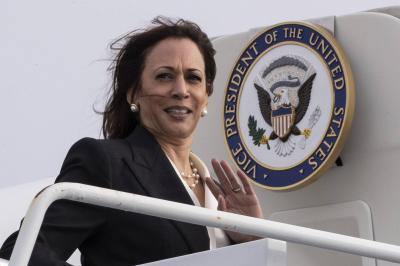It has become clear that the leadership of the Iranian regime has "chosen" the Democratic presidential candidate Kamala Harris and her running mate Tim Walz, following intricate and intriguing calculations. However, the choice was not difficult to predict. The line followed by former President Barack Obama and subsequently by President Joe Biden is the same one that candidate Harris will adopt if she wins, but perhaps with even more involvement in a greater extremism that may ultimately serve Tehran's interests.
The big question is: what does it mean for Tehran to "choose a candidate" for a great power like America? Does it have additional power to influence? What would be the outcome if the Democratic candidate reaches the White House? Historically, the Khomeini leadership began its attempts to influence the American elections after the U.S. occupation of Afghanistan and the invasion of Iraq and the overthrow of their regimes. These developments shocked the high leadership in Tehran, which feared that the Iranian republic could face a similar fate and that Americans would invade Iran and overthrow the ruling Khomeini regime.
Iran launched a strategy to undermine the "American decision" in Washington before the latter could overthrow the entire republic. It began to expand its influence within universities, research centers, corporations, bureaucracies, and political parties, managing to enter decision-making centers with Barack Obama's rise to the presidency in 2009. Its influence continued to expand until the signing of the nuclear agreement in 2015. This led to the establishment of an effective and financially capable lobby. It became evident that this influence partially contributed to Obama's rise to power in the first place.
The lobby played a significant role in resisting Donald Trump's ascension to the presidency in 2016. When Trump arrived at the White House, this powerful bloc intensified its opposition against him, especially since he dealt multiple blows to the regime by withdrawing from the agreement in 2018 and placing the Revolutionary Guard on the terror list in 2018. The lobby mobilized all its strength alongside the Obama-Biden team in 2020 to oust Trump. Many believe that Iranian funding contributed to the summer 2020 protests and administrative uprisings against Trump.
These alleged interventions enabled the regime to impose the lobby's power within the United States regarding foreign policies and build extensive political alliances concerning the Middle East, achievements that only the pro-Israel lobby had accomplished. Thus, as Tehran collided with the U.S. presence in the region, it simultaneously penetrated American policies internally, particularly in universities and media institutions. Arab capitals wondered about the source of Iran's influence in American politics. The answer was and still is the financial influence of the nuclear agreement. However, this assumed that executive bodies would always support the lobby's objectives, thus backing it with all its might for eight years for Obama and four years for Biden. It was logical that in 2024 the lobby would throw all its weight behind Biden.
However, something surprised everyone: the pro-regime camp in America did not rush to support President Biden in his re-election bid. While the Democratic Party machine initiated the renomination of President Biden, a tradition upheld in the United States—similar to what nominated Obama for a second term—suddenly a faction within the party turned against the president's nomination, which was effectively seen as a coup within the power structure. It became clear that the former President Obama was behind this white coup, orchestrating a change of candidate from Biden, directing attention to other scenarios, and subsequently reverting to the "Harris-Walz list," which would absorb Obama’s core team that structured the nuclear agreement.
Why did Obama and thereby the Iranian regime turn against Biden, leading to the "production of a Harris presidency”? Biden had essentially executed Obama's agenda and the nuclear agreement to the letter for four years—from removing the Houthis from the terrorism list to withdrawing from Afghanistan, to returning to the nuclear agreement, to sending billions to Tehran, to pressuring the Arab coalition, to pressuring Israel, to abandoning opposition to Tehran, to allowing pro-"Hamas" supporters to occupy universities, to attempting to impose a ceasefire in Gaza linked to protecting "Hamas". So why was Tehran dissatisfied with Biden's nomination and preferred Kamala?
The answer is not difficult. On a personal level, it became evident that Biden had lost his mental faculties, making it conceivable for Trump to defeat him in the elections, which could pose a historic threat to the regime. Politically, it became clear to Tehran that the president was still influenced by the Israel-aligned pressure bloc, which obstructed the Iranian regime's plans in Gaza, Lebanon, and the region. Last but not least, the possibility of Trump returning to the White House poses a high risk to the nuclear agreement and its benefits. Thus, for several reasons, Tehran decided to sacrifice Biden and choose Kamala to the end. In this way, the Islamic Republic of Iran has a titanic struggle within America, and it will place all its capabilities into this battle.




